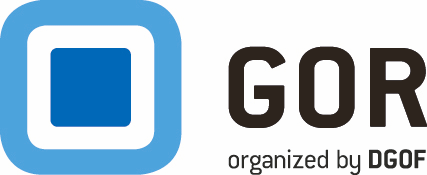Relevance & Research Question
How can AI help to make complex and resource-intensive research projects simpler, more insightful, faster and more effective?
Methods & Data
Use of various AI models (generative, pre-trained large language models (GPT), algorithmic machine learning models, AI-supported decision tree analyses) for process optimization, deepening of knowledge and impact prediction.
Results
Based on qualitative and quantitative figures, the results of 5 pilot projects are presented to show the opportunities, limits and risks of using AI for different tasks in large research systems.
Added Value
We try to estimate the possible financial, personnel and time savings by using AI and we want to show how AI can improve the outcome of a research system.
Abstract
In an annual online survey, DHL Group collects structured and open feedback from around 550,000 employees. This Employee Opinion Survey (EOS) is conducted worldwide in 55 languages and for 60,000 organizational units. Due to its size, the operational implementation of the survey requires the use of large financial and human resources. It is not surprising that various stakeholders expressed a desire to optimize the survey: HR departments wanted more automation and a more effective follow-up process. Team heads wished more specific recommendations for action and top management wanted an optimized use of resources.
EOS project team then asked itself how AI could help to make the project simpler, more insightful, and more effective. All process steps were evaluated, and five AI pilots/projects were rolled out.
1. AI to automate survey setup. The challenge is that the reporting structure cannot be derived directly from the formal line organization. And therefore, it’s a major manual effort for the HR departments to assign 550,000 employees to their teams. To optimize the process, we used machine learning models to automatically assign employees to the reporting structure.
2. AI to improve online questionnaire. In online surveys, the answers to open questions often remain short, as there is no interviewer to explore. To fill this gap, we used a GPT model that reacts individually to the respondent's open answer and asks additional in-depth questions.
3. AI to speed up the open comment processing. We used AI to translate, anonymize and categorize the 142,000 open comments in a fully automated process.
4. AI to make results dashboard more user-friendly and effective. We implemented a chatbot in our reporting tool that uses the current OpenAI GPT model. The chatbot starts with an individual management summary and answers specific questions of the users.
5. AI to predict which follow-up measures are particularly effective. We evaluated the initiatives documented in the action planning tool from previous years with next year’s EOS results using an AI-supported decision tree analysis.
Using these five AI projects as examples, we show the opportunities, limits and risks of using AI, especially for large research systems.
